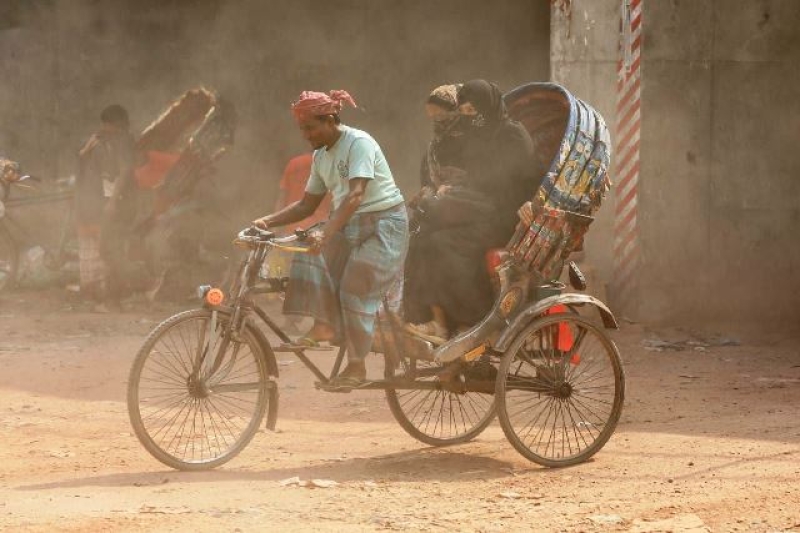- Power generation at Payra Thermal Power Plant 1st unit starts after a month |
- Irregularities, injustice will no longer be accepted in politics: Jamaat Ameer |
- 2 arrested in Jhenaidah for allegedly selling madrasa student |
- Koko’s wife campaigns for Tarique in Dhaka-17 |
- Bangladeshi Expats Cast 4.58 Lakh Postal Votes |
Dhaka’s air world's 6th worst Wednesday morning

Air quality of Dhaka Worst on Wednesday 12 Jan 2025
Dhaka, Feb 12 - Dhaka, the overcrowded capital city of Bangladesh, has ranked sixth on the list of cities with the worst air quality with an AQI score of 171 at 8am this morning (February 12, 2025).
Today’s air was classified as 'unhealthy', referring to the fact that air pollution levels are high enough to cause adverse health effects for some people.
When the AQI value for particle pollution is between 50 and 100, air quality is considered ‘moderate’, usually sensitive individuals should consider limiting prolonged outdoor exertion, between 101 and 150, air quality is considered ‘unhealthy for sensitive groups’, between 150 and 200 is ‘unhealthy’, between 201 and 300 is said to be 'very unhealthy', while a reading of 301+ is considered 'hazardous', posing serious health risks to residents.
Vietnam’s Hanoi, Bosnia Herzegovina’s Sarajevo, India’s Mumbai and Delhi and Pakistan’s Lahore cities respectively occupied the first, second, third, fourth and fifth spots on the list.
The AQI, an index for reporting daily air quality, informs people how clean or polluted the air of a certain city is and what associated health effects might be a concern for them.
The AQI in Bangladesh is based on five pollutants: particulate matter (PM10 and PM2.5), NO2, CO, SO2, and ozone.
Dhaka has long been grappling with air pollution issues. Its air quality usually turns unhealthy in winter and improves during the monsoon.
As per World Health Organization (WHO), air pollution kills an estimated seven million people worldwide every year, mainly due to increased mortality from stroke, heart disease, chronic obstructive pulmonary disease, lung cancer, and acute respiratory infections. - UNB

